Interview: Brendon Small Talks WesFest 8 and the Live Debut of 'Galaktikon'
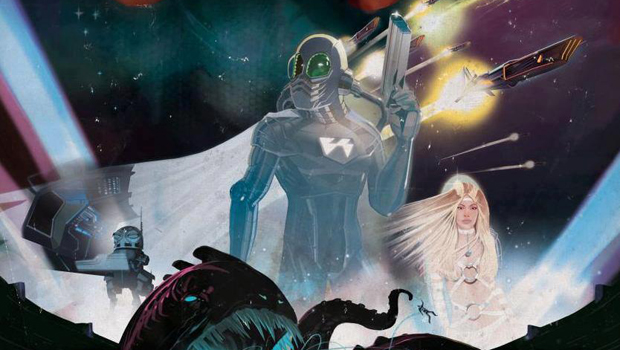
Dethklok and Metalocalypse mainman Brendon Small released a solo album last year under the project title Brendon Small's Galaktikon.
What was supposedly a studio-only endeavor has become a massive undertaking as Small prepares for Galaktikon's live debut at the Roxy Theatre in Hollywood on March 3. The show will be part of WesFest 8, an annual concert to benefit the Wes Wehmiller Endowed Scholarship at Berklee College of Music.
A few days ago, I caught up with Small to discuss this event in detail. Check out Galaktikon here. You can get tickets to the show here.
GUITAR WORLD: What is WesFest 8, and how did you get involved?
I got involved through Bryan Beller, my bass player, who has been putting on this festival for the past seven years. He plays bass with me in Dethklok, and he plays bass on this solo project that I did called Galaktikon. So I’ve been friends with him. We also went to the same music school, Berklee College of Music. He finished before I got there but I’ve been following him for years because he played with Dweezil Zappa, then he played with Mike Keneally and all these great guitar players.
He was definitely on my radar. He said, "Hey, this Galaktikon record is something you never thought about playing live, but if we got enough musicians on stage you could do it!” I said, "Well, if we have enough guitarists and vocalists, then yeah!" It’s a pretty big undertaking, but what these guys are playing is pretty amazing. This is a benefit for a bass player who died of cancer a long time ago, named Wes Wehmiller. I never knew him, but Bryan Beller was really good friends with him, and so this is a scholarship in his name for the same school we went to. So that’s where all the money is going, for all young bass players. And that’s the whole idea.
You graduated a long time ago. Have you returned for any guest lectures?
Get The Pick Newsletter
All the latest guitar news, interviews, lessons, reviews, deals and more, direct to your inbox!
No, but I would because that’s something I’m totally interested in. I’ve only gone back there to walk around and reminisce. I was there with my girlfriend earlier this year, just walking past the building. I spent a very important part of my life at that school and in Boston between becoming a learned musician and becoming a comedian. That was an important part of my growing up.
I’m surprised that you didn’t go back for lectures,; I’ve seen you giving lectures at NAMM and things like that, and you’re really good at it.
Oh yeah, I’m very comfortable speaking in front of people. I have fun doing it. Maybe I will do something of that sort at Berklee in the future. I would definitely love to do it. We just have to get our schedules together.
Obviously you work with Bryan Beller. Other than him, have you kept in touch with your fellow students?
Not necessarily. I’d love to know more about it, but I’ve been lucky enough to be working steadily since I graduated. In my last year at music school, I did something a lot of Berklee students didn’t do. I took classes at one of the sister schools, Emerson College, and they had a communication school. That’s where I started really taking seriously the idea of writing for television and becoming an actor and comedian.
So while I was taking classes on advanced jazz solo concepts, I would go over and write a bunch of stupid jokes in my other class, and I was very competitive. So even as a music student I wanted to be the funniest and best writer in the class. That was an important part. If I were to talk to any Berklee students, I would say don’t be afraid to go and learn other things, because music takes a long time to settle in. But to answer your question, I only have a few friends I’ve kept tabs on. I mostly hung out with kids who were actors and writers. I didn’t actually hang out with many musicians while I was there.
People who graduate from music schools often get into session work. What’s your take on that? Do you feel it doesn’t give the musician freedom? It’s just something they do for money, right?
That’s very true! Here’s what I did, actually. Before my last year at music school, I decided to go and get an internship. I didn’t know what I was going to do with music. I knew I loved guitar, I loved technique, I loved learning how to play and I loved metal. But it wasn’t really at the forefront. It hadn’t come back yet.
So I had all this technique and these guitar-playing skills, but I didn’t know what to do with it. But I really liked taking composition classes, and I liked writing music. I thought maybe I could become a film-scoring person, so I took a lot of classes for that. Then I thought, wouldn’t it be great if I could get into the jingle-writing business, to write music for commercials and stuff. So I interned in that summer for two different jingle houses in New York, and that’s where I really made a decision about what I wanted to do for the rest of my life.
I saw people who were really talented musicians, but they were at the mercy of a 30-second spot for Advil or something. It was pretty limiting and the people that were directing a lot of these pieces really didn’t challenge themselves to learn musical terminology, or to be able to express themselves musically. You’d get a director who’s not necessarily musically intelligent, and it was just a cluster fuck. I didn’t want to do that. I wanted to be the guy writing the piece, and the guy directing and acting in the piece, and then I want to be the guy making the music. So I was going to create a gig at some point where I get to do all of that stuff, and I wasn’t going to wait for somebody to hire me. That was my goal, and I ended up doing that with my first TV show and then with Metalocalypse.
The Galaktikon live debut is a big undertaking, and it’s not something you wanted to do or expected to do. How much did you actually have to prepare and rehearse?
We prepare a lot because first of all, this is something pretty fun because we have four guitarists on stage, and each one of those are amazing guitarists. We have the amazing Mike Keneally, who has played with Frank Zappa. He’s such a good guitar player, but he’s such a jerk because he doesn’t even really consider himself a guitar player. He’s like, “I’m a piano player, that’s my forte.” But he can do anything on guitar. He plays piano with Satriani and he’s played guitar with Steve Vai’s band. He’s just a guy who can do anything.
And then there’s this guy named Rick Musallam. I don’t think everybody knows about Rick. He plays with Mike Keneally, and he mainly does session stuff, but he’s also a guy who can pretty much do anything. He’s able to match Keneally note-for-note on everything he does.
And then finally we have Jude Gold, who took care of the guitar department at Musicians Institute in Hollywood. He tours with tons of different people and he’s just a guy that’s incredibly humble. So all four of us sat down and worked on all these harmonies and were going over the material, to divide all the moments in the songs. It took me a really, really long time to learn how to play. They can do it in a second, and I’m like, "That’s not fair. It took me five years to be able to do that and you’re just doing it right now.”
And then they can do stuff I simply can’t do. They have amazing ability and rhythm, and I have a great time working with them. One of the most important things when I consider working with anybody is, they’ve got to have a really good attitude and they don’t take anything too seriously. They can show up and they can goof off and laugh a lot, and that’s really important. I wish there was a class on that at the music school. Whenever I put a project together, I consider the fact that I’m going to spend a lot of time with the person I’m hiring, so they'd better be really cool and fun, and I should get excited about working with them. All these guys I’m working with are that. So, we have a few different days of guitar rehearsals, and a few days of vocal rehearsals. I’m singing a lot and then for some of the singing I had to divide up the vocals because of the way I recorded this album.
When I do a Dethklok record, I consider how I’m going to perform it live. With Galaktikon, I just thought it should sound what I wanted it to sound like. I wasn’t concerned about whether I could perform it live. So there are moments when I need to hit a high note and I have to rest all day and hit that high note. After that, there’s another high note. So my voice can start suffering very easily.
I thought if I have a few other vocalists with me on stage, I’m going to be able to divide that stuff up and everyone will get to have a moment to shine and it will be really fun. So that’s that, and next week we’re going through all the stuff with the rest of the band. We’re going to have five vocalists on stage, four guitarists, Tim Yeung who’s an amazing drummer, and Bryan Beller on bass. Musically, there’s going to be a lot of talent on stage, excluding myself.
This lineup, other than the guys playing with you in Dethklok, of course, was it handpicked or a case of whoever was available?
No, Jude Gold I had already thought of, because I’m also busy working on Metalocalypse stuff right now, so I’m not going to be able to be the musical director for this show and I need someone who’s a monster player, who’s completely organized and easy going, and the one guy I could think of was Jude Gold. So I hand-selected him. And then my first thought for drums was to get Gene Hoglan, but he’s playing with Testament right now.
He wished he could have done it, but then I heard about this guy Tim Yeung and I saw his videos of YouTube. I thought, "Oh my god, this guy has serious technique!" I’m excited to rehearse with him. I know Jude is good friends with him. So next week it’s going to be three days of rehearsal and then we’re going to do this thing once and who knows, may be we’ll do it again and more often if it goes well. But it’s definitely a good-sized undertaking.
How did you decide that you need exactly four guitarists?
I could have probably gotten away with fewer because I overdub a lot of guitars. I really like strong, big harmonies ala Brian May. I love Queen and all that stuff, so I recorded in that style. I do a lot of voice-leading traditional style of harmonies. On any big moment of a song, let’s say for the song called "You Can’t Run Away" in which there’s a break with a six-part guitar harmony, which is a triad.
I could technically put two more guitars on stage, but that may be too crazy. I thought it would be nice to have two guys covering rhythm guitar. I put some melodies on top of the guitar, and there will be parts where I can’t play and sing at the same time. I think if we do put four guitar players on stage, for the most part each person will have something to do and we can arrange these harmonies. For Dethklok it’s always two guitars, but sometimes it’s Mike Keneally coming up with a six-part guitar harmony-type thing.
Between he and myself, we have to make that sound really big with just two guitars. So he plays double stock necks and I play the melody on top of that. But it would never sound as cool as single notes on guitars. That’s why I wanted to do this. There are so many guitar parts in these songs, but I kept on overdubbing and putting on these little moments on them. I wasn’t worried about recreating it on stage, obviously. But here we are [laughs].
When you play this material live, how much is the setup going to differ as compared to what you did in the studio?
It’s going to be pretty similar. For every sound we have on the record, we’re trying to recreate it with what we’ve got. I don’t think we’re going to deviate too much. The idea is to see how close we can come to the keyboard patches, the guitar harmonies, to how many vocals I overdubbed in one particular section, so the idea is to be pretty faithful to the record and to play it identically. It’s funny the way we approached this too, because between myself, Mike Keneally and Rick Musallam, we did a really fun thing about a year-and-a-half ago. We did a 20-year anniversary of Freddie Mercury’s death at the Roxy, where we had three guitars and six vocalists doing Queen songs. We did about two hours of Queen, and it was some of the most fun I’ve ever had on stage. Compared to anything to do, it’s always easier to do other things than it is to do Dethklok because I’ve got to sing, play guitar and all the other stuff. But this is so much fun to just play guitar or just to sing. I figured this is all going to be possible, after doing that Queen tribute show.
You wrote this as a studio-only project, so did you end up rediscovering your own compositions through these rehearsals because this is something new for you as well?
It’s true! Very often when I’m recording and writing in the studio, sometimes they are the same thing because when I open up a Pro-Tools session I consider it just a big sketchbook. It’s not detrimental to record a small idea and then to harmonize it and use it later on or interpolate it or invert it. Very often, I forget what I did in the moment, so I don’t remember anything that I ever do on guitar [laughs]. There’s this big instrumental song called "Dangertits" on the Galaktikon record, and it was tricky. It’s got a lot of notes and tiny parts. It’s not something I can’t do, but keeping it all flowing nicely is just something that I’ve been making sure of, and I practice a lot. But yeah, it’s fun to rediscover and to see how accurate we can get. There are also moments where we’re like, "There are four guitarists but that part requires six, so let’s just keep the most important notes.”
Anything else you want to mention?
We’re giving away an Epiphone Thunderhorse guitar, which isn't available yet. I think the guitar will be available in the spring. Whoever shows up at the gig enters to win one of those. It’s a really good guitar. We did a soft launch of that at Winter NAMM. So that’s very cool.
Andrew Bansal is a writer who has been running his own website, Metal Assault, since early 2010, and has been prolific in covering the hard rock and heavy metal scene by posting interviews, news, reviews and pictures on his website — with the help of a small group of people. Up till February 2012 he was based in Los Angeles. After that, he had to move to India, but is still carrying on his heavy metal endeavors with the same intensity.
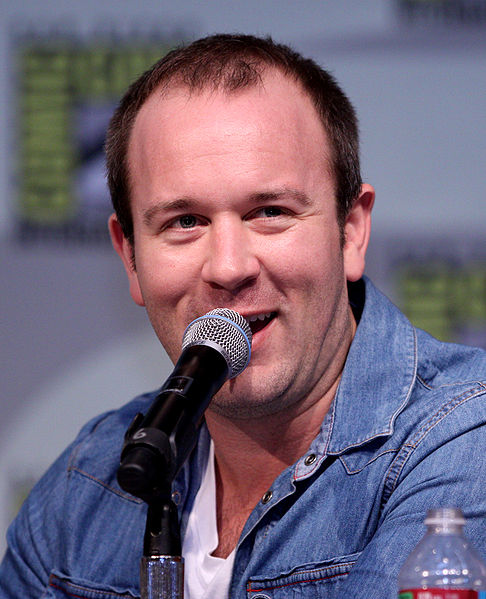
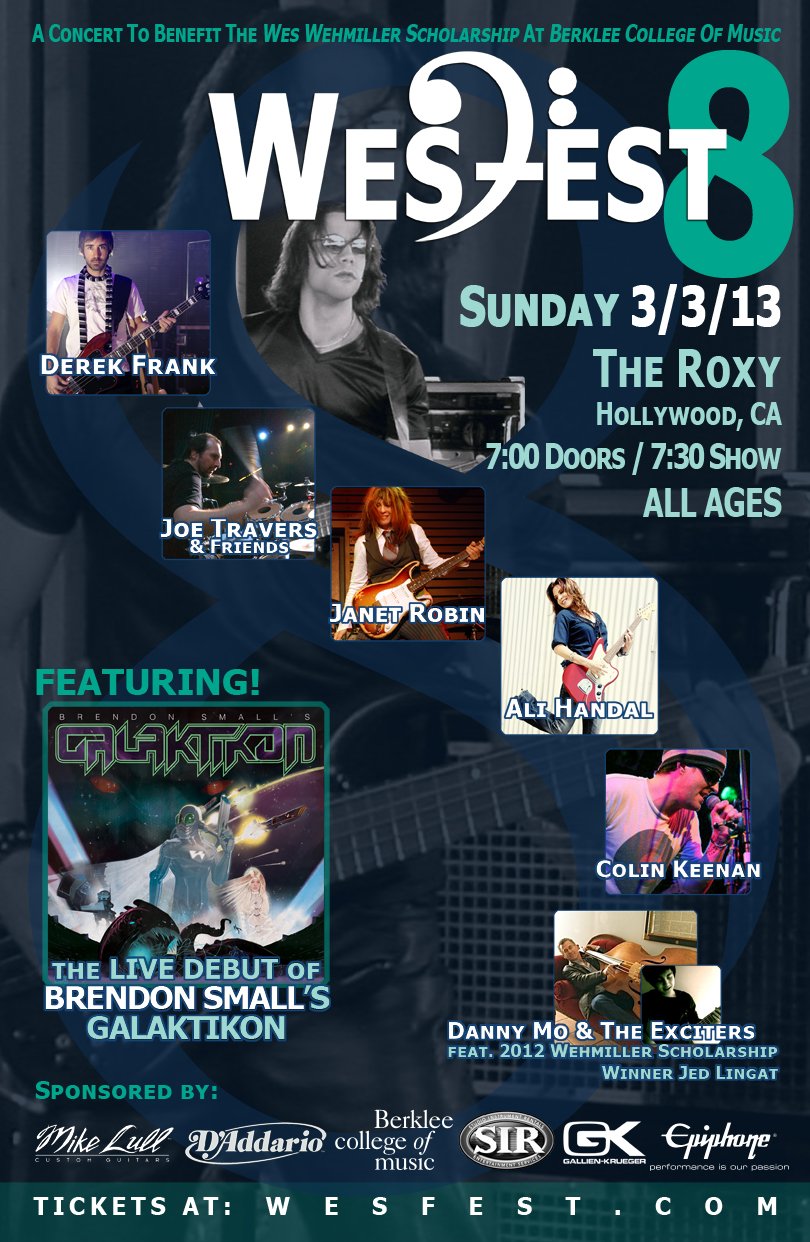
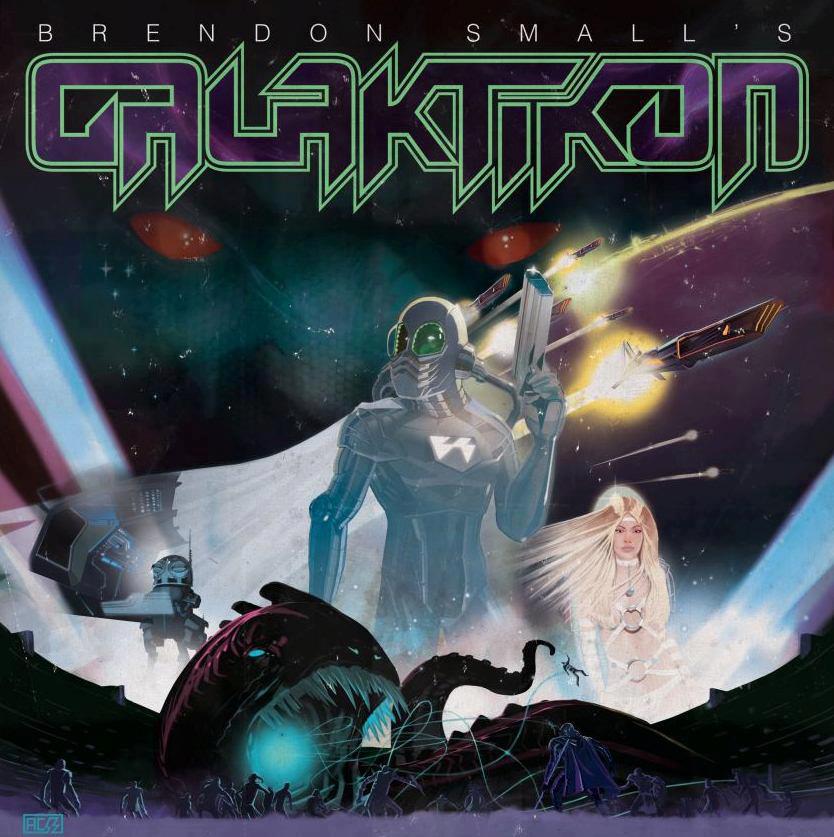
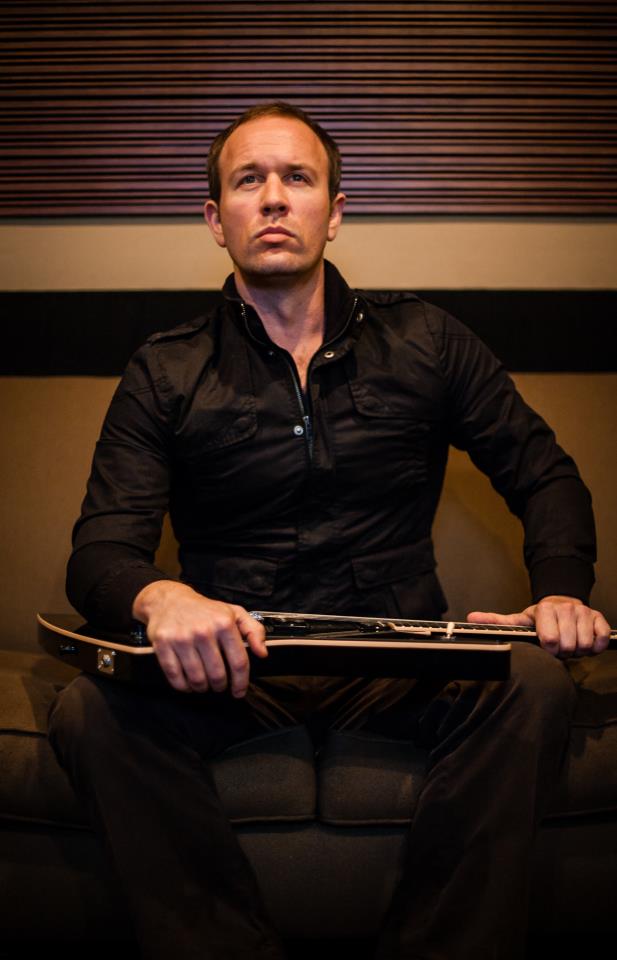
“Every tour was the best I could have done. It was only after that I would listen to more Grateful Dead and realize I hadn’t come close”: John Mayer and Bob Weir reflect on 10 years of Dead & Company – and why the Sphere forced them to reassess everything
“Last time we were here, in ’89, we played with Slash on this stage. I don't remember what we did...” Slash makes surprise appearance at former Hanoi Rocks singer Michael Monroe's show at the Whisky a Go Go

![John Mayer and Bob Weir [left] of Dead & Company photographed against a grey background. Mayer wears a blue overshirt and has his signature Silver Sky on his shoulder. Weir wears grey and a bolo tie.](https://cdn.mos.cms.futurecdn.net/C6niSAybzVCHoYcpJ8ZZgE.jpg)

![A black-and-white action shot of Sergeant Thunderhoof perform live: [from left] Mark Sayer, Dan Flitcroft, Jim Camp and Josh Gallop](https://cdn.mos.cms.futurecdn.net/am3UhJbsxAE239XRRZ8zC8.jpg)






